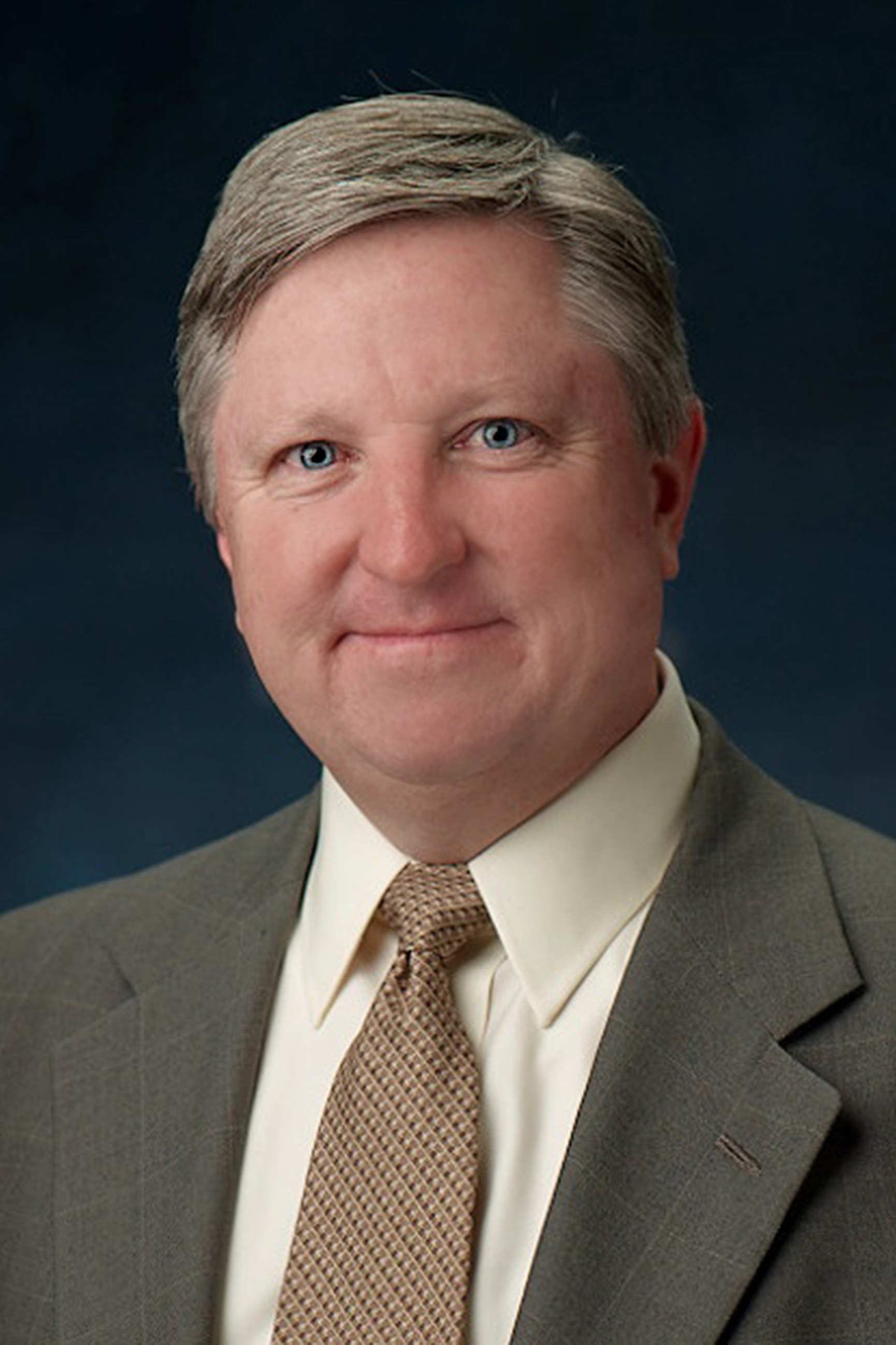
Mark Doyal, chair emeritus of the United Methodist Association of Communicators and director of communications for the Michigan Conference, monitors the conference’s 2020 annual meeting. The virtual conference took place on screens across the state July 26-28, 2020. In the foreground is executive assistant Kristen Gillette. Photo by Aaron Word.
Over 30 years ago, I was assigned to the church communications committee. At my first meeting, an elderly member of the committee said, “When I call the church office, a recording tells me to ‘press 1’ to speak to the pastor.” She added in exasperation, “I’ve got a rotary dial telephone, how am I supposed to reach the pastor?” A friend next to her gently patted her hand and said, “You know Ann, it is only going to get worse!”

Mark Doyal
Photo courtesy of the Michigan Conference.
Photo courtesy of the Michigan Conference.
In her book, “The Great Emergence,” author and religious professor Phyllis Tickle theorized that every 500 years or so, the church holds “a giant rummage sale.” Preceded by a traumatic global event, it becomes a time of massive religious upheaval. In the unrest, we decide what to keep and what to discard. Nevertheless, from this painful disruption, new ideas emerge. These times are historically followed by growth.
2020 may be the start of a new rummage sale. Worship held in the sanctuary, only on Sunday, may be over. It is long overdue. For decades, the church has competed for time on Sunday from over-scheduled families. For churches that offered effective online worship and discipleship as an option before the pandemic, attendance and stewardship continue to thrive.
Let it be noted: Online worship is not a new idea. For more than 100 years, churches have been seeking new ways of sharing the Gospel that extend beyond in-person worship. Since the 1920s, churches have been broadcasting on the radio, followed by a shift to television in the 1950s and 1960s. What is new is the sudden, pandemic-induced demand that all churches offer some kind of online—or on-phone—worship. Moreover, unlike paid radio or television, the internet makes that possibility much more affordable.
Commentaries
UM News publishes various commentaries about issues in the denomination. The opinion pieces reflect a variety of viewpoints and are the opinions of the writers, not the UM News staff.
Sometimes it takes the world to fall beneath our feet, to push us out of our comfort zones and into new ways that lead to growth. There are five takeaways I believe local churches can take from this time of disruption:
First, God has got this! This is not the first disruption in history. It will not be the last. Have faith God will give us the tools and the gifts to grow the Kingdom. Offer yourself and others grace as we move through this time. Use what God has given you and work to grow from there. We will get through this together.
Second, online worship is here to stay. We must accept that this time of disruption is not a sprint or a marathon. We are running an entirely new kind of race. The need for vital churches to offer online worship and discipleship growth will not end after we get through these isolated times. Online worship is a solution to attracting people back to the church. Our best hope is to create new disciples and turn around decades of decline by offering what people need, such as access to worship and discipleship on demand. It is worth noting that it does not mean installing a security camera in the back of the sanctuary and calling it "good." Online worship must look and feel different from in-person worship.
Third, church communications ministry is now essential. Historically, communications have often been considered an administrative or operational function of the church. It is, in fact, outreach. It is evangelism. Church communications requires faithful people, working as a small group, doing faithful work. In today’s setting, communications are an essential pipeline for local churches to preach, teach and reach out in mission. This holds true for local churches, districts and especially annual conferences, which are charged with supporting local churches with resources.
The communication technology demands for your church will only continue to grow. These new responsibilities cannot rest solely on the shoulders of our pastors. Pastors and ministry leaders are already stretched thin in this current environment, experiencing extraordinary workloads as they move worship and discipleship online. Thriving local churches will add paid staff and trained volunteers who view communications as a critical outreach ministry.
Fourth, local churches must invest in online communication infrastructure. As we enter 2021, leaders need to budget for communications and internet access similarly to how they would approach maintenance of a church roof, parking lot, furnace or any other brick-and-mortar expenditure. Once there was a time when having a bell in the church tower was considered essential. Now, vital churches need a robust website, social media channels and online worship presence to serve the community around them. Again, I urge districts and annual conferences to also invest. The need for online training and support will only continue to grow.
Fifth and finally, United Methodists must learn to work together. Our DNA is connectional and perfectly aligned for this effort. Churches must learn to work with like-minded congregations to create, bank and share online content and worship resources. A cohort of four to six churches, alternating weeks producing music, online children's time, Bible studies, liturgies and other content, can significantly reduce effort and cost. All of this still can happen in a way that allows the pastor to preach during worship. We must care for and protect our clergy and staff.
Subscribe to our
e-newsletter
Like what you're reading and want to see more? Sign up for our free daily and weekly digests of important news and events in the life of The United Methodist Church.
Those churches willing to live in the discomfort of change and willing to embrace and invest in a new way of reaching and creating disciples of Jesus Christ will grow and thrive. Those that seek the comfort of offering worship in the same way we have for the past 50 years will likely fade into the history books.
Disruption does not have to mean destruction. Disruption can lead to new ways of growing God’s Kingdom.
Doyal is chair emeritus of the United Methodist Association of Communicators and director of communications for the Michigan Conference of The United Methodist Church.
News media contact: Tim Tanton at (615) 742-5470 or newsdesk@umcom.org. To read more United Methodist news, subscribe to the free Daily or Weekly Digests.
Like what you're reading? Support the ministry of UM News! Your support ensures the latest denominational news, dynamic stories and informative articles will continue to connect our global community. Make a tax-deductible donation at ResourceUMC.org/GiveUMCom.



